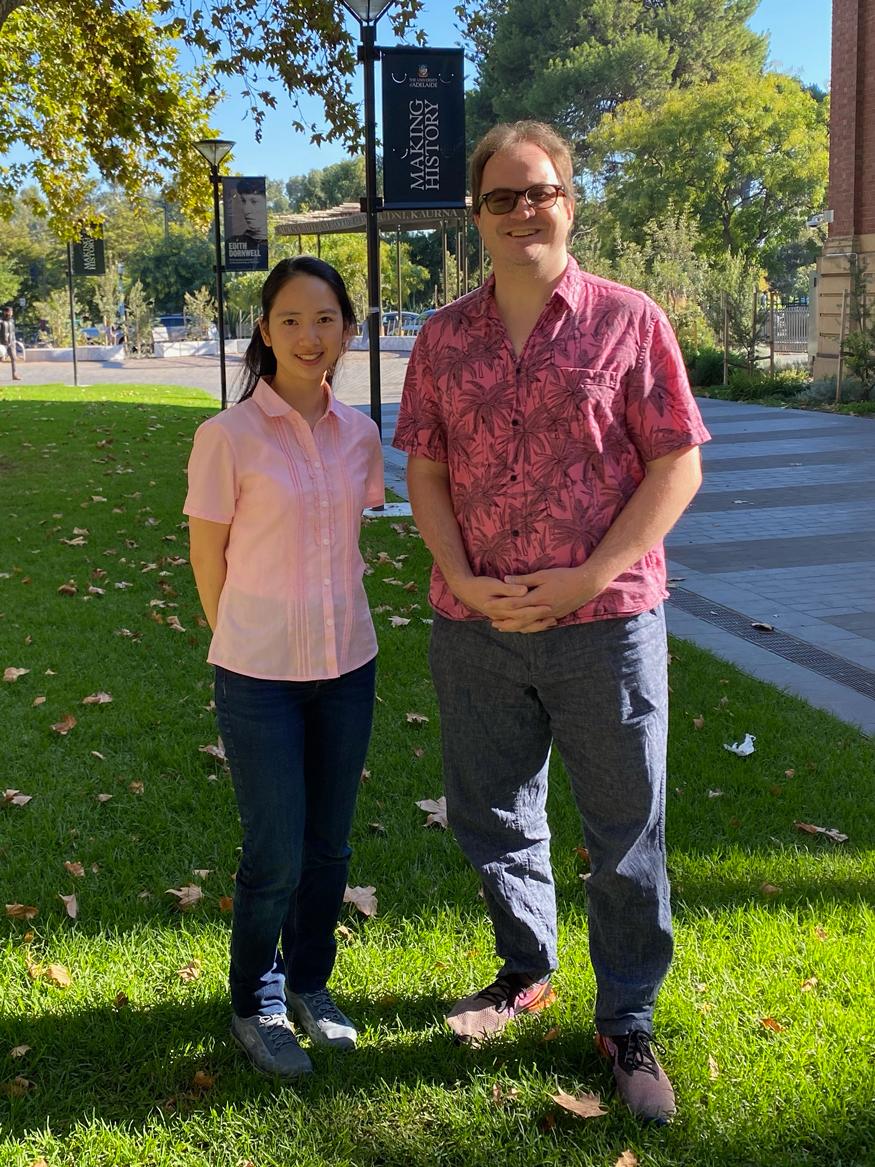Computer Science researchers receive Google Research Scholar Program grant
Dr Chitchanok Chuengsatiansup and Dr Markus Wagner from the School of Computer Sciences have recently been awarded funds from the Google Research Scholar Program.
The Research Scholar Program aims to support early-career professors in Computer Science and related fields at institutions around the world. The funding is awarded to the cutting-edge research relevant to Google with the hope to help develop collaborations and long-term relationships.
Dr Chuengsatiansup and Dr Wagner received the award for their research: Automatic Post-Quantum Cryptographic Code Generation and Optimization.
Congratulations again to Dr Chuengsatiansup and Dr Wagner on their fantastic achievement.
Research impact
Quantum computers will break currently deployed cryptosystems, risking our privacy in daily email communications, integrity of online business transactions, confidentiality of national secrets, and global digital security. Translating quantum-resistant cryptographic algorithms into efficient implementations requires experts and their time. The project "Automatic Post-Quantum Cryptographic Code Generation and Optimization" aims at automatising this process by developing a toolkit to automatically generate optimised post-quantum cryptographic code.
Dr Chuengsatiansup and Dr Wagner's aspiration is to automatically create efficient and secure post-quantum cryptographic code:
- Post-quantum means using classical-computer algorithms that can withstand the computing ability of quantum computers.
- Efficient means highly optimised, taking into account not only the fastest state-of-the-art arithmetic formulas but also the best utilisation of resources available such as not wasting CPUs cycles or memory.
- Secure means safe against attacks which exploit the structure of the underlying mathematics foundations, as well as safe against side-channel attacks which exploit leakage from devices running algorithms.
- Automatic means that we save an experts’ time of finding an efficient implementation once the running device or the cryptosystem’s design are changed.

About the researchers
Dr Chitchanok Chuengsatiansup is an expert in cryptographic optimisation and efficient implementation.
She is one of the designers of the NTRU Prime scheme, which has recently advanced to the third and final round of NIST's Post-Quantum Cryptography Standardization Project.
Dr Markus Wagner is an expert in graph optimisation, particularly in multi-objective approaches.
At the School of Computer Science, he has established the field of search-based software engineering which offers suites of adaptive automated and semi-automated solutions to complex problem spaces.
